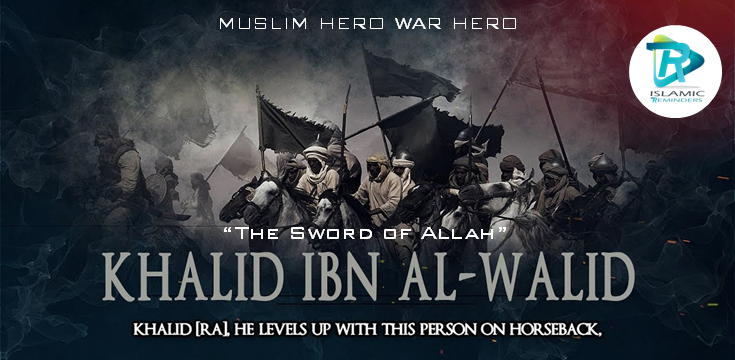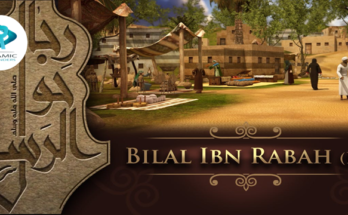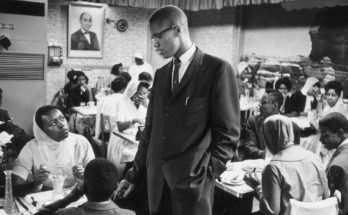MUSLIM HERO WAR HERO
Khalid ibn AI-Waleed (may Allāh be pleased with him)“The Sword of Allah” (d. 21 A.H.)
It is reported that Prophet Muhammad (peace and blessings of Allāh be upon him) said, ‘The better ones of you in the Days of Ignorance are the better ones of you in Islam when they understand (the religion).” These wise words of Prophet Muhammad (peace and blessings of Allāh be upon him) were best proved in the case of our hero today, Khalid ibn AI-Waleed. For, it was Khalid ibn AI-Waleed who managed to cause the defeat of the Muslim army at Uhud, before his conversion t o Islam.
In fact , the reader of history will find that Khalid ibn Al-Waleed was a military strategist and commander with very few equals in human history, a man who turned many a defeat or near defeat into glorious victories, as well shall see in the few examples we will be quoting.
The first military encounter in which our hero showed his genius was the Battle of Uhud, which he (while a polytheist) caused to be the worst for Muslims in the early days of Islam. This battle was initiated by the Makkan polytheists in revenge for their defeat at the Battle of Badr, where more than thousand of them were defeated by only a little over three hundred Muslims fighters.
In the Battle of Uhad, Prophet Muhammad (peace and blessings of Allāh be upon him) placed a group of archers on a nearby hill to give protection to the back of the Muslim army with specific instructions not to leave their posts under any circumstances. However, when the battle proved initially to be in favour of the Muslim army, the archers forgot the orders of their commander and left their positions. At this juncture, the military genius of Khalid ibn AI-Waleed led him to take a band of fighters with him around the hill and attack
the Muslim army from the rear, where they least expected their enemy; hence, the loss on the part of the Muslims became a great one. The Prophet (peace and blessings of Allāh be upon him)was wounded and his uncle Hamzah (may Allāh be pleased with him) killed, along with many other distinguished companions of the Prophet (peace and blessings of Allāh be upon him).
In the eighth year after the Hijra. one day Khalid ibn AI-Waleed sat pondering on the new religion (Islam). He kept saying to himself, “The message is fast spreading, and the man is certainly a Messenger. What am I waiting for? For how long shall I postpone my conversion to Islam?” He wished for a companion to travel with him to Madinah, and he found two others who had the same thought. When Khalid arrived at Madinah and announced his acceptance of the Faith of Islam, the first thing he asked the Prophet (peace and blessings of Allāh be upon him)was to pray to Allah to forgive him for his earlier aggression against Islam and the Muslims.
The Prophet told him that conversion to Islam meant that all his past sins were forgiven by Almighty Allah. Nevertheless, at the insistence of the sincerely repenting Khalid. the Prophet (peace and blessings of Allāh be upon him) prayed for him to be forgiven for whatever he had done to Islam and the Muslims
before his conversion to Islam.
With Khalid ibn AI-Waleed joining the camp of believers he found the honourable cause to fight for, and the believers gained a true military genius who was both an excellent strategist and a fierce fighter and army commander. The first battle in which Khalid won the day for Muslims was the Muslims’ first encounter with the Byzantine army in the Battle of Mu’tah on the Northern borders of the Arabian Peninsula. Due to the dangerous nature of the battle, Prophet Muhammad (peace and blessings of Allāh be upon him) chose three commanders to succeed one another. The reason for sending these fighters was that the Byzantine rulers in the Syrian region had killed some Muslim missionaries and converts to Islam; thus, proving their hostility not only to the Faith, but also, and even worse, to the principle of freedom of belief which Islam considers to be the most important cause for which a believer should fight and stand. The Byzantine army proved to be too large in number in comparison with the small number of the Muslims. Yet, the Muslim army never hesitated to enter the battle (everyone hoping to find his way to Paradise and the Pleasure of Allah through martyrdom).
The three commanders were killed, and the banner was about to fall on the ground when Thabit ibn AI-Arqam rushed to save it; he took it to our hero Khalid ibn AI-Waleed (may Allāh be pleased with him), telling him that he gave it to him because he was more knowledgeable in matters of war. In the beginning Khalid refused because he felt Thabit was more worthy of leading the army due to his age and service to Islam. But he accepted at Thabit’s insistence and the unanimous consent of the fighters. We mentioned that the battle was not in favour of the Muslims, due to the huge number of the Byzantines and the death of the three commanders appointed by the Prophet (peace and blessings of Allāh be upon him).
The only way to save the day was to retreat, but that was almost impossible, since the Muslim army was surrounded. It was here that we see the Genius of Khalid ibn AI-Waleed at Work.
For, despite the extreme difficulty of the situation, he reshuffled the right and left flanks of the Muslim army and introduced forward a division from the rear in order to cast fear in the hearts of the disbelieves who then thought that fresh reinforcements had arrived. Though clever planning and courageous fighting, Khalid managed to make an opening within the lines of the enemy through which the Muslim army managed to get out safely. We are told in Sahih Al-Bukhari that our hero used seven swords that all broke in that battle.
The Prophet (peace and blessings of Allāh be upon him), who was then in Madinah, was talking to his companions when he received the revelation about what was going on in the battle, and he informed them of the death of the three commanders. “Then,” he said, “a sword of Allah took hold of the banner and saved the day.” Thus, it was that our hero Khalid ibn AI-Waleed was given the title of Sayf-ul-llah. ‘The Sword of Allah.’
Upon the death of Prophet Muhammad (peace and blessings of Allāh be upon him) Abu Bakr (may Allāh be pleased with him) was elected successor to the Prophet. The first crisis that met the new Caliph was that of mass apostasy and the apostates in the Peninsula. It is true that many people did not reject the Faith, but they only refused to pay Zakat. To Abu Bakr??(may Allāh be pleased with him) that was the same as rejecting the Faith because paying Zakat is one of the five pillars of Islam. There also appeared imposters who claimed prophet hood like Musaylimah. The crisis was a great one indeed, and the Muslim community was in the danger of annihilation, without a swift and decisive action on the part of the Caliph. So Abu Bakr (may Allāh be pleased with him) formed an army which he wanted to lead himself, were it not for the insistence of the leaders of the community that he stayed at the capital, Madinah. He divided the army into eleven divisions with a commander for each. One of those divisions was put under the command of our hero Khalid ibn AI-Waleed, who won all the battles entered by his army. But the most dangerous to be met with was that in which the Muslims had to fight Musaylimah the Imposter and the Liar, who formed the largest army of apostates. The Caliph chose Khalid for the assignment of fighting Musaylimah. In the beginning, a large number of the Muslims were killed. Seeing that. Khalid went up to the top of a nearby hill and studied the situation to discover the weak spots of the enemy. He then re-organized his army.
The battle raged furiously and Musaylimah was killed. With that Khalid finished off the danger of apostasy and apostates in the Arabian Peninsula.
But this was only the beginning of the many tasks which Abu Bakr (may Allāh be pleased with him) assigned to our hero and which he successfully carried out. For, from experience and with his foresight, Abu Bakr (may Allāh be pleased with him) knew that the two hostile empires on the borders of the Peninsula had to be confronted and tamed. There was no better man for the job than our hero. Abu Bakr (may Allāh be pleased with him) gave orders to Khalid ibn AI-Waleed to proceed to Iraq (which was then a part of the Persian Empire), which he liberated for its people who were subjugated by the Persians. To the Roman Empire Abu Bakr??(may Allāh be pleased with him) sent armies under the command of distinguished companions of the Prophet (peace and blessings of Allāh be upon him) such as Abu ‘Obaidahh ibn Al-Jarrah and ‘Amr ibn AI-‘As. But the Roman Empire prepared a huge army whose news was sent to Abu Bakr (may Allāh be pleased with him).
His answer was that Khalid ibn AI-Waleed, who was ordered to go to Syria to take charge. However, with his intelligence and experience, Khalid realized that the former commanders might not be happy with that decision of the Caliph. So he suggested that he, along with others, take command by rotation. After a careful analysis of the situation and a study of his enemy, Khalid laid down a very careful strategy. Since the Muslim army was outnumbered and the Romans were better equipped and experienced (there were also many new converts from the region” Khalid was afraid that a couple of soldiers might try fleeing, which would have a devastating effect on the morals of his army. To avoid such a situation Khalid ordered that Muslim women be armed too and wait in the rear. They were given orders to kill anyone who might attempt to flee from the battle, something which is considered treachery and a major sin in Islam. The battle was a very fierce one, but with their unlimited faith and conviction and with their thirst for martyrdom the Muslims fought fearlessly, to the extent that with a band of only 100 fighters Khalid faced a whole division of many thousand Roman soldiers.
The genius of Khalid fascinated many Roman commanders, which led one of them at a lull of the fight to call out for Khalid. When he met him he asked, “Khalid. tell me the truth. Is it true that the Almighty has sent down a sword from Heaven to His Prophet, and he gave to you, and that no one can stand it?” Khalid could have used the occasion to frighten his enemy, but instead he told the truth and said, “No.” Then he explained how he came to be called the Sword of God. The Roman commander asked, “What are your preaching?” Khalid replied,: “We preach the worship of one God.” the Roman asked, “Will a convert today have the same reward from Allah like you?” to which Khalid answered, “Yes, and More.” “How come” inquired the Roman. “when in fact you joined the faith before him?” Khalid answered, “We lived in the life-time of Muhammad (sa/la-Uaahu ‘a/ayhi we-settemi, and we saw his signs and miracles. It was very easy for someone like that to accept Islam and believe in its Messenger. As for you, you have not seen or heard the Prophet, but you believe in him in absentia. So your reward with Allah should be greater if you are sincere.” The Roman commander went next to Khalid ”
and asked him to teach him Islam. He joined the faith and fought along the Muslim army only to die as a martyr In the Cause of Allah.
The heroic nature of Khalid is revealed in another manner in this famous battle of Yarmouk. For in the midst of that critical battle Khalid received a letter in which he was informed of the death of Abu Bakr (may Allāh be pleased with him) and the instructions of the new Caliph that he make Abu Obaidahh in charge. To Avoid any possible confusion in the army, Khalid kept the matter in secrecy until victory was achieved. He then went to Abu Obaidahh to put himself under his command. To Khalid it made no difference whether he was in command or a soldier as long as the was fighting for the sake of Almighty Allah.
Source: Heroes of Islam – Dar-us-Salam



